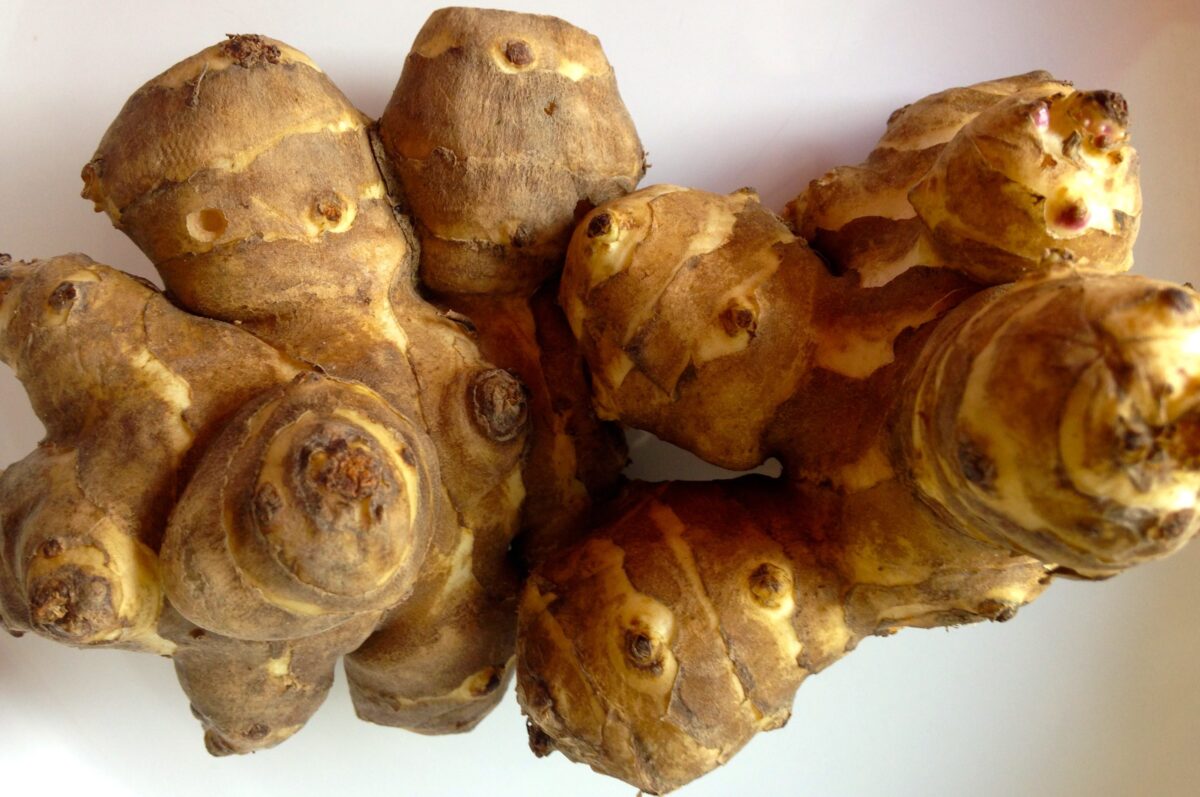Jerusalem Artichokes

Jerusalem Artichoke/Atihoka
Availability
Jerusalem artichokes are available in short supply from April to August.
Storage and Handling
Store in the refrigerator. Handle with care as they bruise easily and wash before eating.
History
Despite its name, the Jerusalem artichoke has no relation to Jerusalem. It is not a type of artichoke but a tuber, the root of a type of sunflower. Originally it is from North America, where it is usually called a sunchoke.
Facts
- The Jerusalem artichoke is a bumpy, fleshy root vegetable
- It is best cooked and can be used in the same way as potatoes
- Unlike most starchy vegetables, the main storage carbohydrate is inulin rather than starch, which is tolerated by diabetics
- Jerusalem artichokes discolour quickly so after cutting immerse them in water with lemon juice until cooking
Growing Facts
- They grow from tubers which should be planted late winter or early spring
- Jerusalem artichokes grow well in temperate climates in New Zealand
- Jerusalem artichokes are drought resistant
- When fully grown Jerusalem artichokes have a yellow sunflower-like bloom on plants over 1.8 metres high
Nutrition Information
Artichokes are a good source of folate and a source of dietary fibre, biotin, potassium and niacin (vitamin B3).
You will find the full Nutrition Information Panel on the New Zealand Food Composition Data website. This website is owned jointly by Plant & Food Research and the Manatū Hauora Ministry of Health. This website holds the most comprehensive collection of high-quality nutrient data for New Zealand foods. The Database is managed and maintained by dedicated Plant & Food Research staff.
